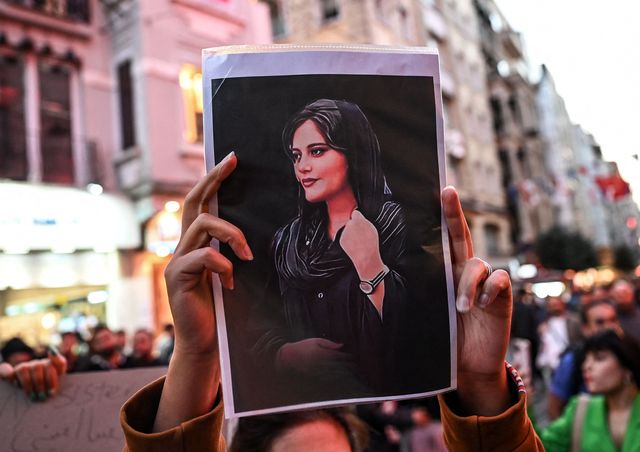Iranian police continue to have running battle with anti-government protesters in Tehran, following the death of Mahsa Amini in the hands of Iran’s morality police.
The Iranian authority has also blocked access to the internet around the capital city Tehran to prevent further mobilisation of youths for the protests.
The unrest, now in their seventh day, are also continuing in many other cities. Activists say eight protesters were shot dead overnight, while news outlets said two paramilitaries were killed.
There are conflicting reports about the number of people who have been killed since the protests began.
State media have reported the deaths of 11 people, including security personnel and protesters, but Kurdish human rights groups have said that 15 protesters have died in western Iran alone.
Anger erupted after Mahsa Amini, a 22-year-old Kurdish woman from the north-western city of Saqez, died in hospital in Tehran on Friday following three days in a coma.
She was visiting the capital with her family on September 13 when she was arrested by morality police officers, who accused her of violating the law requiring women to cover their hair with a hijab, or headscarf, and their arms and legs with loose clothing. She collapsed after being taken to a detention centre.
There are reports that officers beat Ms Amini’s head with a baton and banged her head against one of their vehicles. The police have said there is no evidence of any mistreatment and that she suffered “sudden heart failure”.
In an interview with BBC Persian on Wednesday, Ms Amini’s father Amjad said he was not allowed by authorities to see all of her body before she was buried. He said he was only able to see her face, but not the back of her head, as well as her legs, both of which were bruised.
Many Iranians were enraged by Ms Amini’s death and the first protests took place after her funeral, when women were filmed waving their headscarves in the air and shouting “death to the dictator” – a chant often directed at the Supreme Leader, Ayatollah Ali Khamenei. BBC
 Mahsa Amini...Needless death
Mahsa Amini...Needless death
